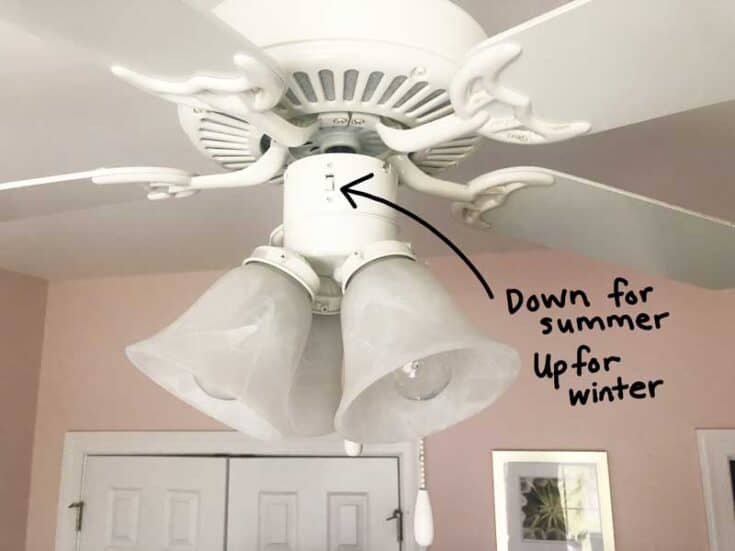
Change Your Ceiling Fan Direction To Save Money & Energy The Happier
Ceiling Fan Direction for Summer. During the warmer months of spring and summer, your fan should turn counterclockwise . This causes the fan blades to push cool air in a downward motion, making it feel cooler in the room. Set your ceiling fan to medium or high speed in the summer to create a wind chill effect.

Ceiling Fan Direction for Summer and Winter Taste of Home
Ceiling Fan Direction Summer vs. Winter. Mounted in the center of a ceiling and capable of spinning at a variety of speeds, ceiling fans circulate the air and thereby affect how cool or warm a.
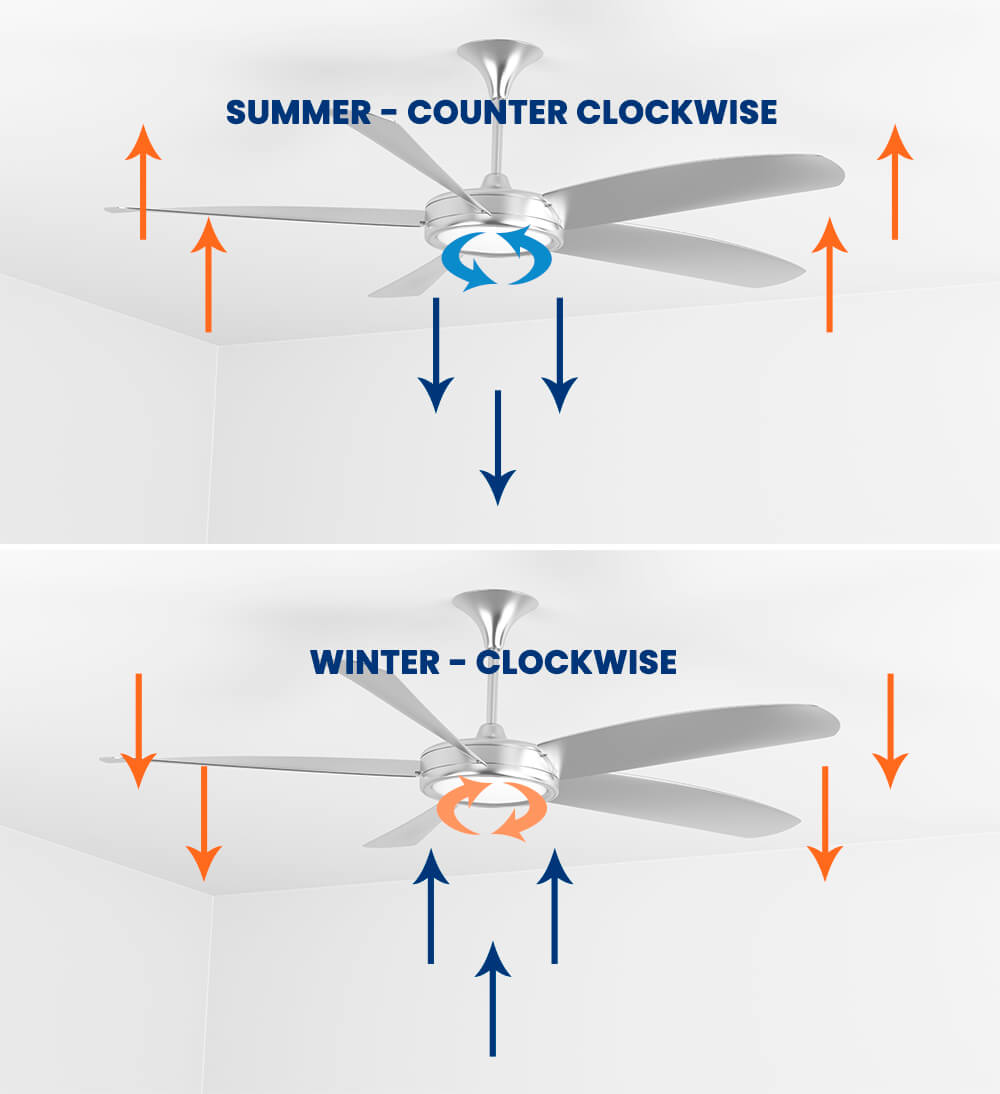
Which Way Does Ceiling Fan Go To Cool
Most ceiling fans are designed to cool the area underneath them by spinning in a counter clockwise direction. Because of the angle and pitch of its blades, a ceiling fan circulates air and creates a cool breeze. So in Summer, most ceiling fans should rotate in a counter clockwise direction. However, there are some exceptions to this.
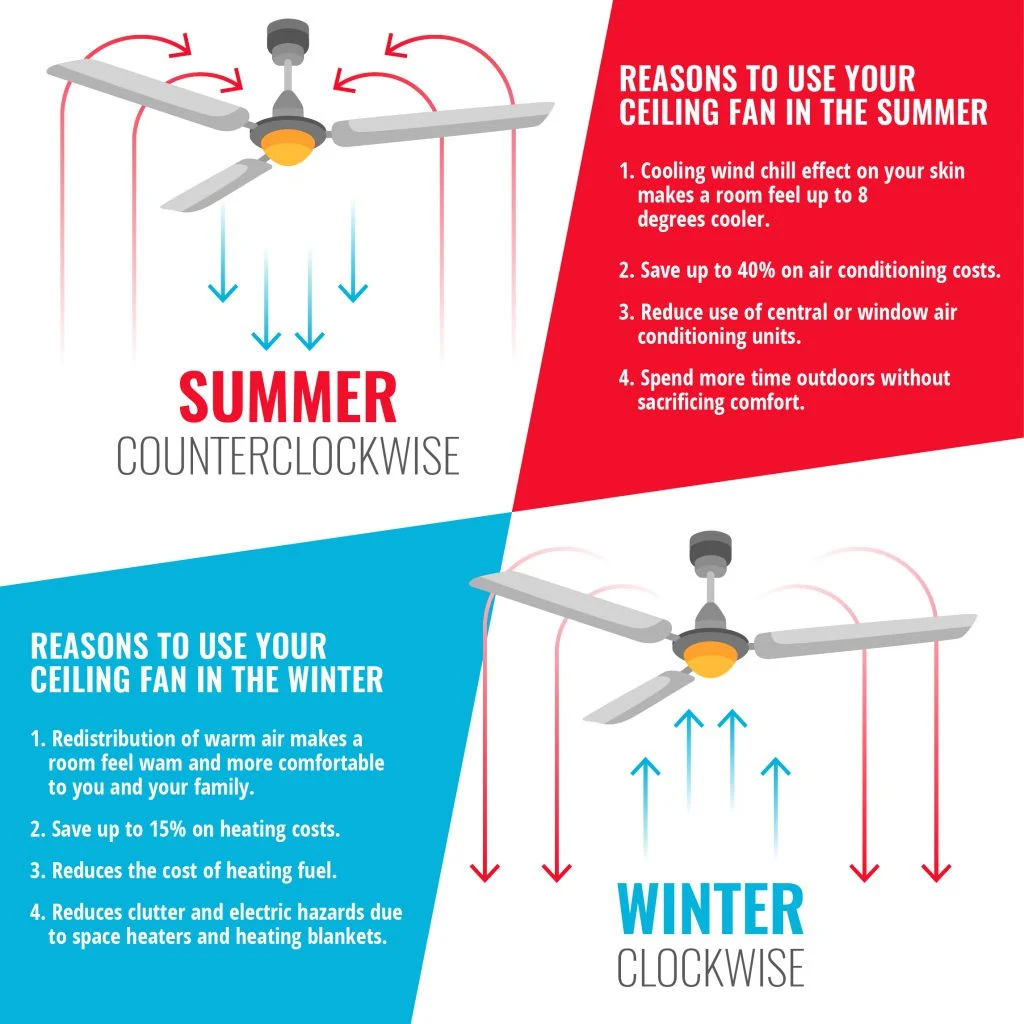
Quick Tips for a Cooler Home — Coastal Signature Homes
Ceiling Fan Direction in the Summer. To help produce a comfortable breeze or "wind chill" that cools the skin, blades should rotate in a reverse, or counterclockwise, motion. The air movement has the same comfortable effect as when you fan yourself with a magazine to get relief from hot, stifling air . Ceiling fans in themselves do not heat or.
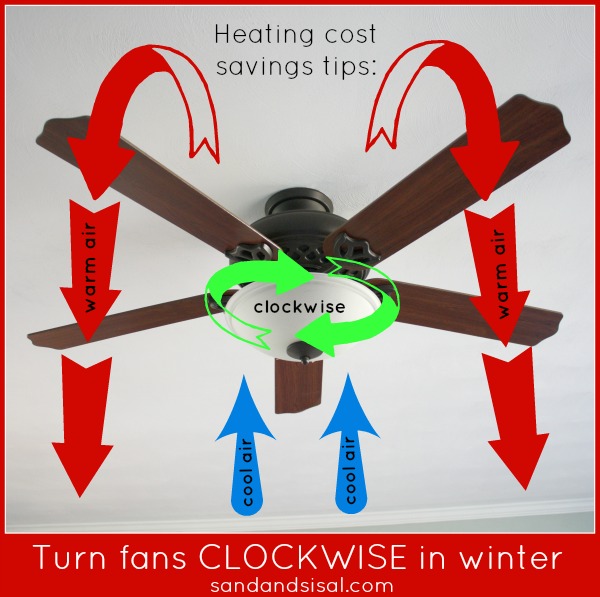
Ceiling extractor fans with lights ebay, ceiling fan direction in
During the summer, make sure the ceiling fan blades turn counterclockwise. This helps push air down. In winter, they should turn clockwise to move warm air from the ceiling. A small switch on the side of the motor housing changes the spin direction. You can change some newer ceiling fans by remote control.
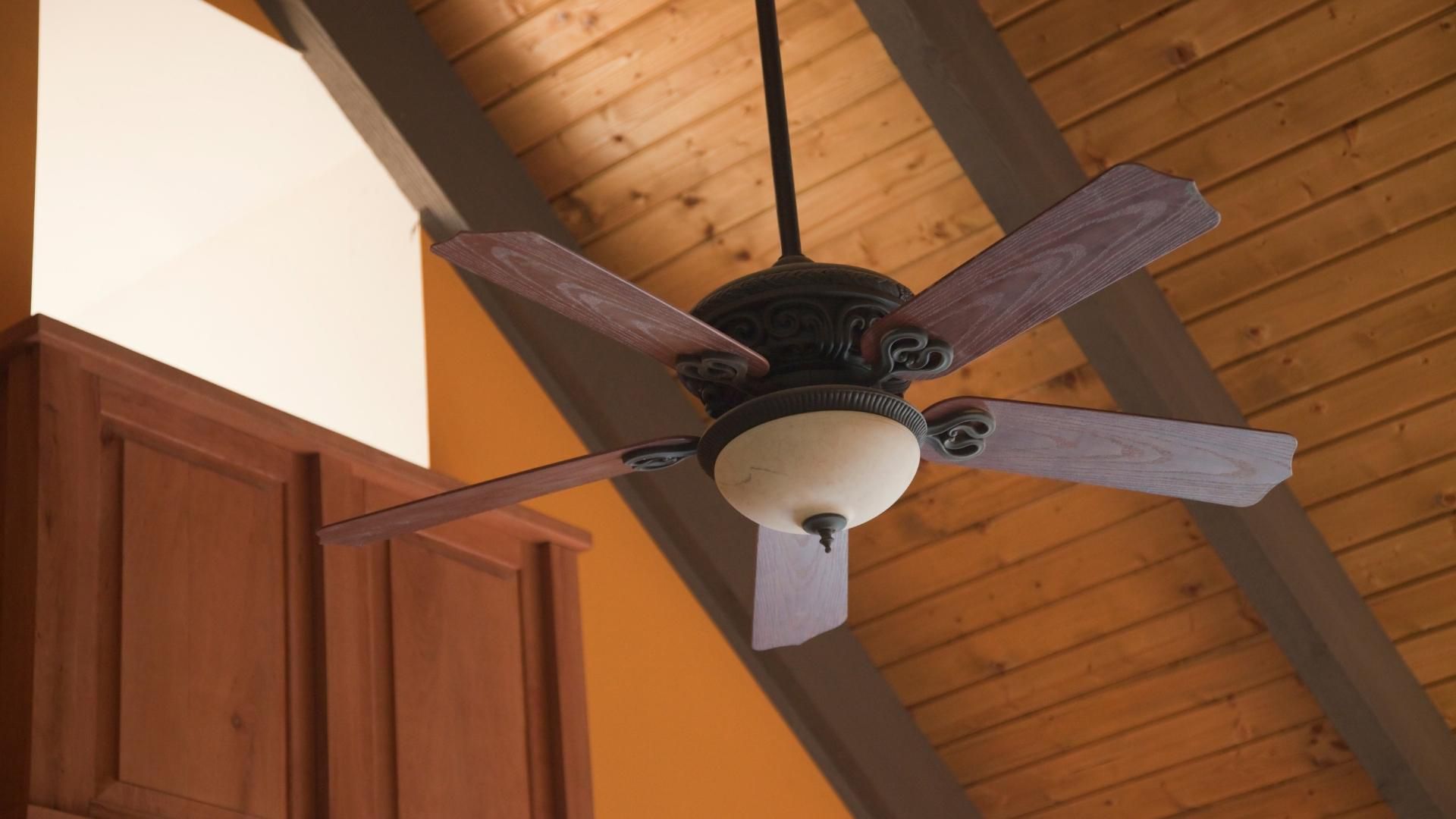
What Direction Does A Fan Go In The Summer Storables
It's important to debunk some common myths associated with ceiling fan direction in summer. Ceiling fans don't actually cool the room but create a cooling effect by circulating the air. The speed and size of the room should dictate the fan speed setting, and ceiling fans are useful in both warm and cool climates.
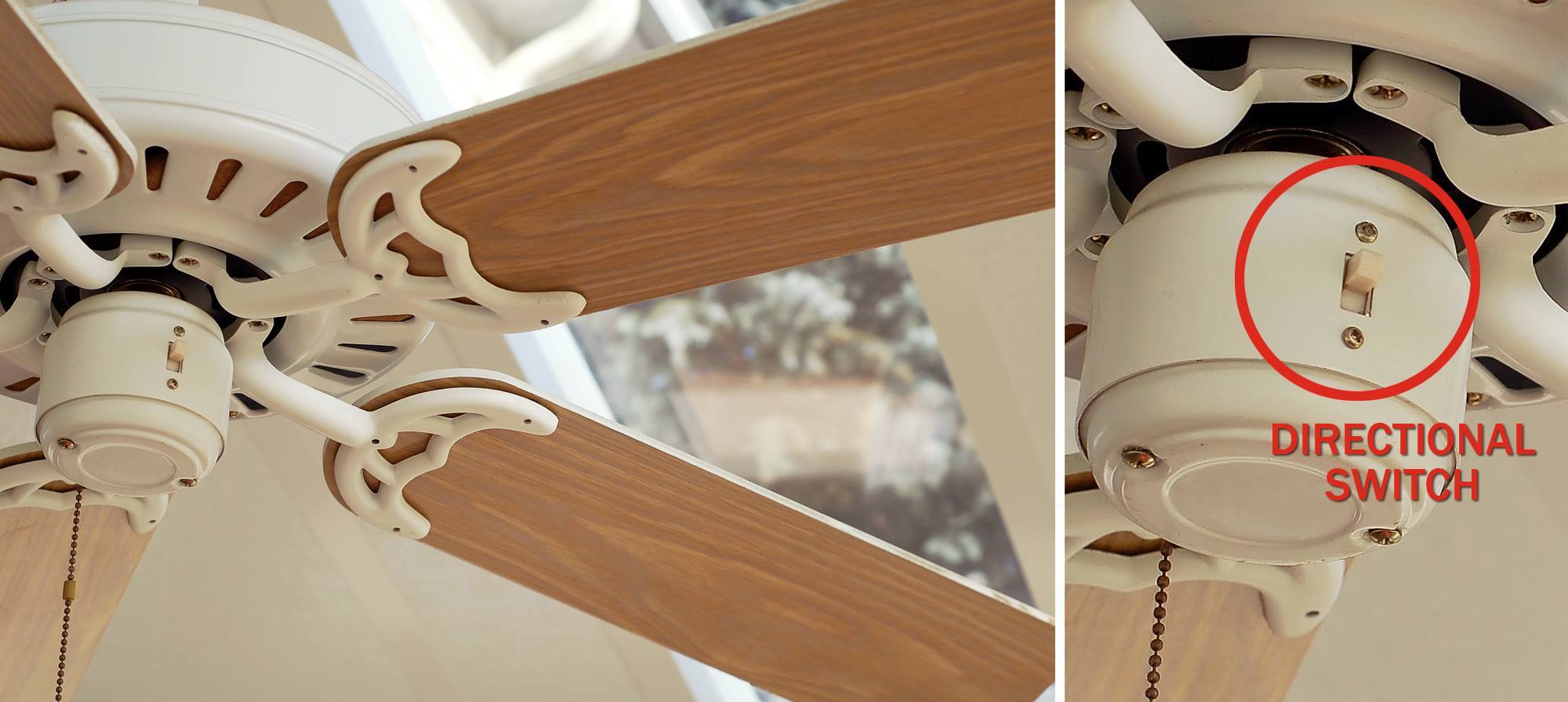
Correct Rotation Of Ceiling Fans
Using a counterclockwise ceiling fan direction can reduce your energy costs up to 30 percent. Most times you can change a ceiling fan's direction to counterclockwise by flipping a switch on its motor. Tip: Stand directly under the fan and look up. If the fan is moving counterclockwise, you'll feel a rush of air. 3.

2018 What Direction Should A Ceiling Fan Turn In the Winter Cool
Switch the direction of your ceiling fan to spin counterclockwise once the weather warms up. The blades' angle pushes air back toward the floor, creating a cooling breeze that also prevents a pocket of warm air from gathering near the ceiling. This keeps warm and cool air moving and lowers the average air temperature in the room by a degree or two.
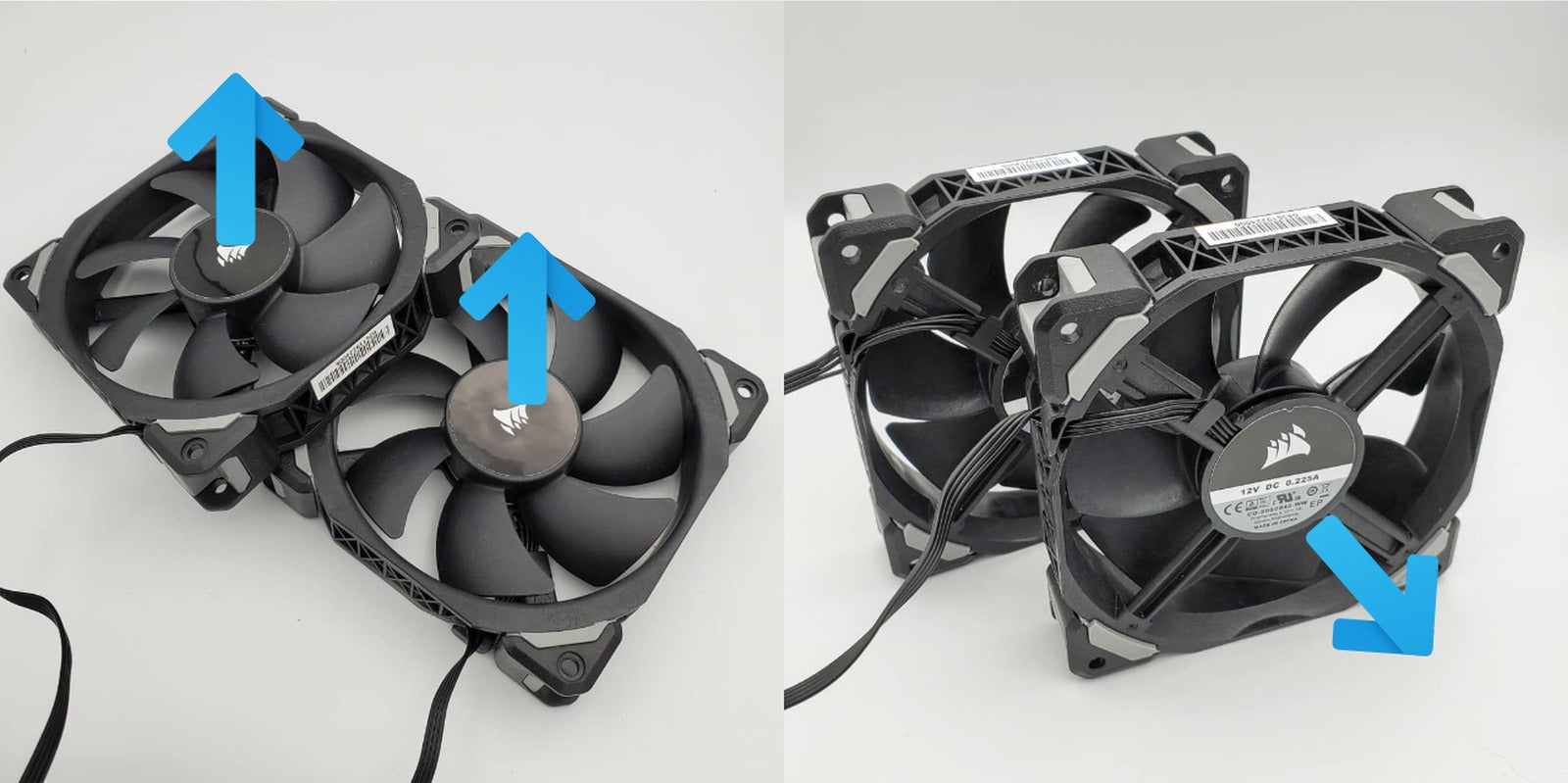
HowTo 냉각 효과를 극대화하는 PC 팬 설정 방법 ITWorld Korea
A. Yes, changing the direction of a ceiling fan can make a significant difference in the summer. When the fan rotates counterclockwise, it pushes air downward, creating a breeze that can make the room feel up to 4 degrees cooler. This can help reduce the reliance on air conditioning and save on energy costs.

what direction should ceiling fans go Ceiling fan direction, Fan
While your fan should spin counterclockwise during the summer months, it needs to spin clockwise during the winter months. Fans should also spin at a low speed so they can pull cool air upward. The gentle updraft pushes warm air, which naturally rises to the ceiling, down along the walls, and back to the floor.
.jpg)
Which Way Should My Ceiling Fan Go In Summer Shelly Lighting
Ceiling Fan Direction in Summer: Counter-Clockwise. During the summer, run your fan's blades counter-clockwise to blow air downward and create a cooling breeze. When a ceiling fan rotates counterclockwise, the airflow it creates helps push away the stagnant layer of air that surrounds you. By moving this air, your body is able to cool itself.
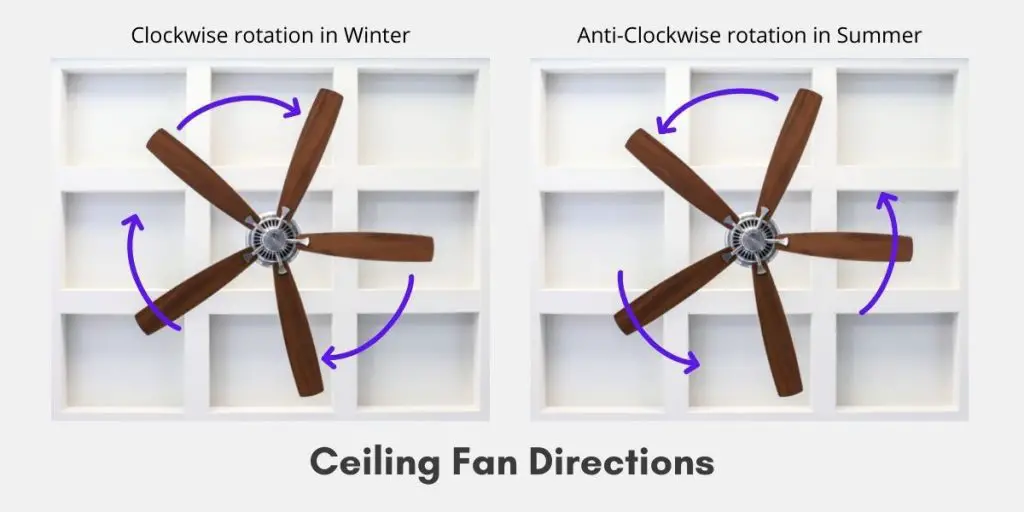
Best Ceiling Fan Directions for Summer and Winter [Infographic]
Is your fan turning in the right direction for summer? Stand beneath the running fan, and if you feel a cooling breeze, it's turning correctly. If not, change directions, usually by flicking a switch on the fan's base. Typically, it's counterclockwise or left for summer and clockwise for winter, but the best method is to follow the steps above.

This Is the Correct Ceiling Fan Direction for Summer
With all this said, here is the correct fan direction by season: In the summer, the ceiling fan direction should be counterclockwise. The downward breeze, generated by counterclockwise fan spin direction, will make us feel cooler. We won't have to push the air conditioner so hard. In the winter, the ceiling fan direction should be clockwise.

Which direction should my ceiling fan rotate? WINTER CLOCKWISE
Ceiling fan direction in summer. To keep cool in summer, your ceiling fan should spin counterclockwise. The counterclockwise direction combined with the blade pitch on fans creates downdraft, which you feel as that welcoming, cool breeze in summer. Our SureSpeed® high velocity ceiling fans are optimized with our SureSpeed Guarantee to deliver.
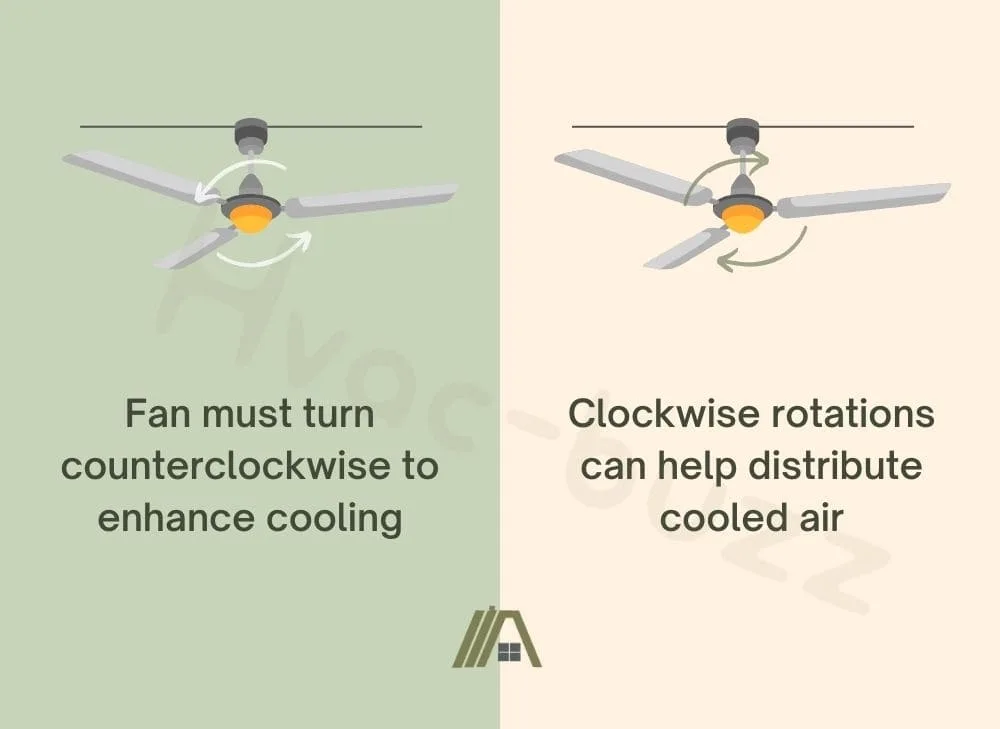
Ceiling Fan Direction With Air Conditioning The Tibble
Learn how to adjust your ceiling fan direction for summer and winter. Seasonally adjusting your ceiling fan direction can cut energy costs. For more ceiling.
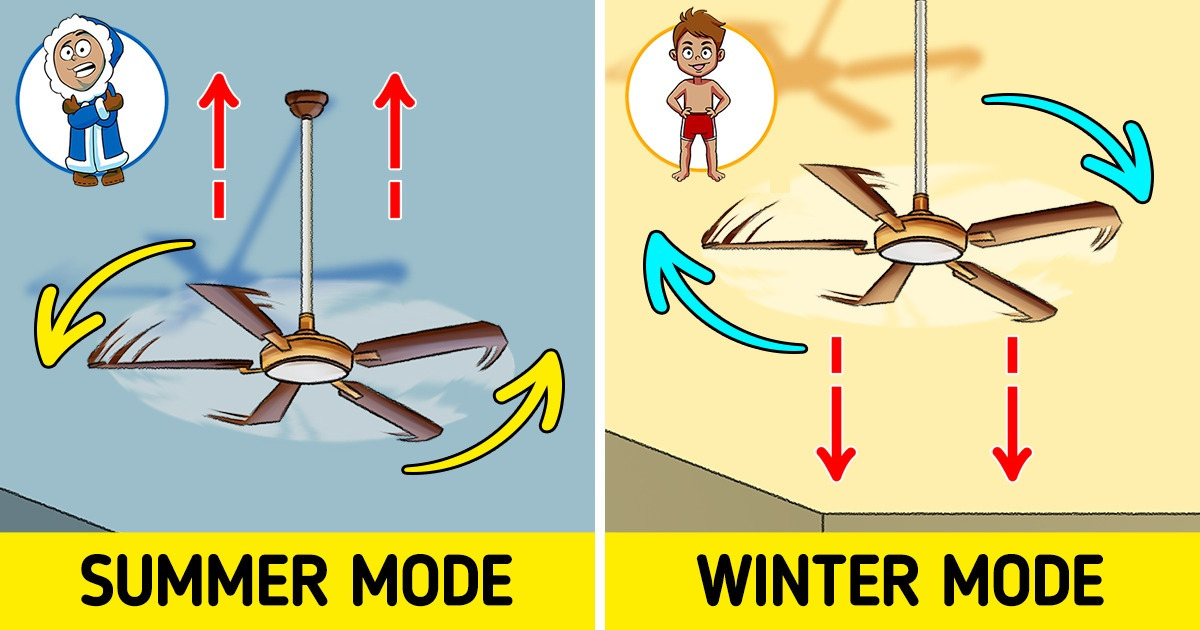
How to Warm Up a Room / 5Minute Crafts
Make sure you're safely out of the way of the blades beforehand, though. If you choose the ceiling fan direction for winter, make sure the speed is set to low. Confirm the blade direction. Look up to make sure the blades of the fan are moving in the right direction: counterclockwise for summer, clockwise for winter.